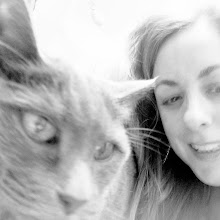An Interview About Interview: Part Two
For part one, please click here
 In June, I spoke with the actor/director [right, with Michael Pitt in Delirious] for The Stranger.
In June, I spoke with the actor/director [right, with Michael Pitt in Delirious] for The Stranger.
It was the last day of my assignment as Seattle International Film Festival contributor, so I quickly transcribed half the interview, and posted the results to Slog. Here is the rest of our short conversation.
*****
Do you see them [characters] in any way as extensions
of your personality? That they represent something that's a part of you anyway—a certain cynicism, or...
[I was referring to Pierre in Interview and Les in Delirious.]
I don't know. I mean, I always just try and put as much of
myself into any character I play, and that's the fun of acting.
I think we all have a range of emotions and different facets
of our personality that maybe we don't always express or
[that we] try to suppress, but it's in there. I think it's in all
of us, and the beauty of acting is that you get to tap into that.
And then walk away.
Yeah.
Is there any part that was hard to get away from? Something about the character—even if it's positive, although I suppose that would indicate it's negative.
Not about the character... A few years ago, I did a film called The Grey Zone. Just the nature of the material, and reading about that whole time [the Holocaust]. That stayed with me for weeks after we stopped filming. It was a really upsetting film to work on.
I'm glad I saw that. It's hard to watch, but—I mean
this as a compliment—it wasn't as hard as I thought
it would be. I was concerned that it would be more
than I could take. So, I think he got that balance right.
Tim Blake Nelson, yeah. [smiles]
So, if I understand correctly, because your film... [is related] in terms of the production, have you actually met with Stanley Tucci and Bob Balaban to talk about their [Theo Van Gogh] films, though they're separate projects?
Stanley and I are good friends, and he just started shooting his film, Blind Date. But I haven't talked to him since he just got back, and then he went to Toronto to work on another film. Each one was really—the director could do whatever they wanted. There was no consensus. The interesting thing is that all three films were supposed to be shot one after the other using the same crew, but the week before Stanley was about to shoot—because he was supposed to go first—the financer didn't come up with the money, so then it was every man for himself. Since then, Bob Balaban has dropped out, so they're hoping John Turturro will do it.
In the [Interview] credits you mention Robert Altman.
I worked with him a couple of times. Kansas City—I got
to do that film right before I did Trees Lounge. It was a
wonderful thing to have happen. And then Tanner.
What did you like about his work, whether
as an actor in one of his films, or in general?
I like his attitude—he fights hard to make the films he wants to make. He said to me he doesn't care whether they're successful—
he wants them to be successful—but on his terms. He told me this when I met him though Kansas City. Then he corrected himself, and said, "On our terms," so he immediately included me.
That's nice.
And that's what he does. He makes everybody working on
the film feel they're an important part in contributing. And he
gives the actors a lot of responsibility, and the crew, and he's able
to keep his uniqueness. All the best directors I've worked with have a definite style of their own, that they really know how to work well with people, and use their talents to help them.
When Trees Lounge came out, you elicited a lot of comparisons to Cassavetes. Was that just a coincidence, or is he someone you like as well? And you've gotten
that less, I've noticed, as you're developing more of
your own—I don't know if I would say style, but I find people comparing your work less to other directors.
I talked about that in the [Trees Lounge] production
notes. I remember talking about that, and it was put
into the production notes, and I think journalists see
that, and so that's what they talk about. I'm curious if I
had never mentioned it, would I still get the comparisons.
That's a good question, because you did also say—
I've read interviews where you said there's a lot of autobiographical stuff in there. And that's you, not Cassavetes. He had his own biography to draw from.
[And with that, our 15 minutes were up.]
Endnote: Interview and Delirious are playing in limited release. Delirious image from indieWIRE (they hated it; I found it amusing).

No comments:
Post a Comment